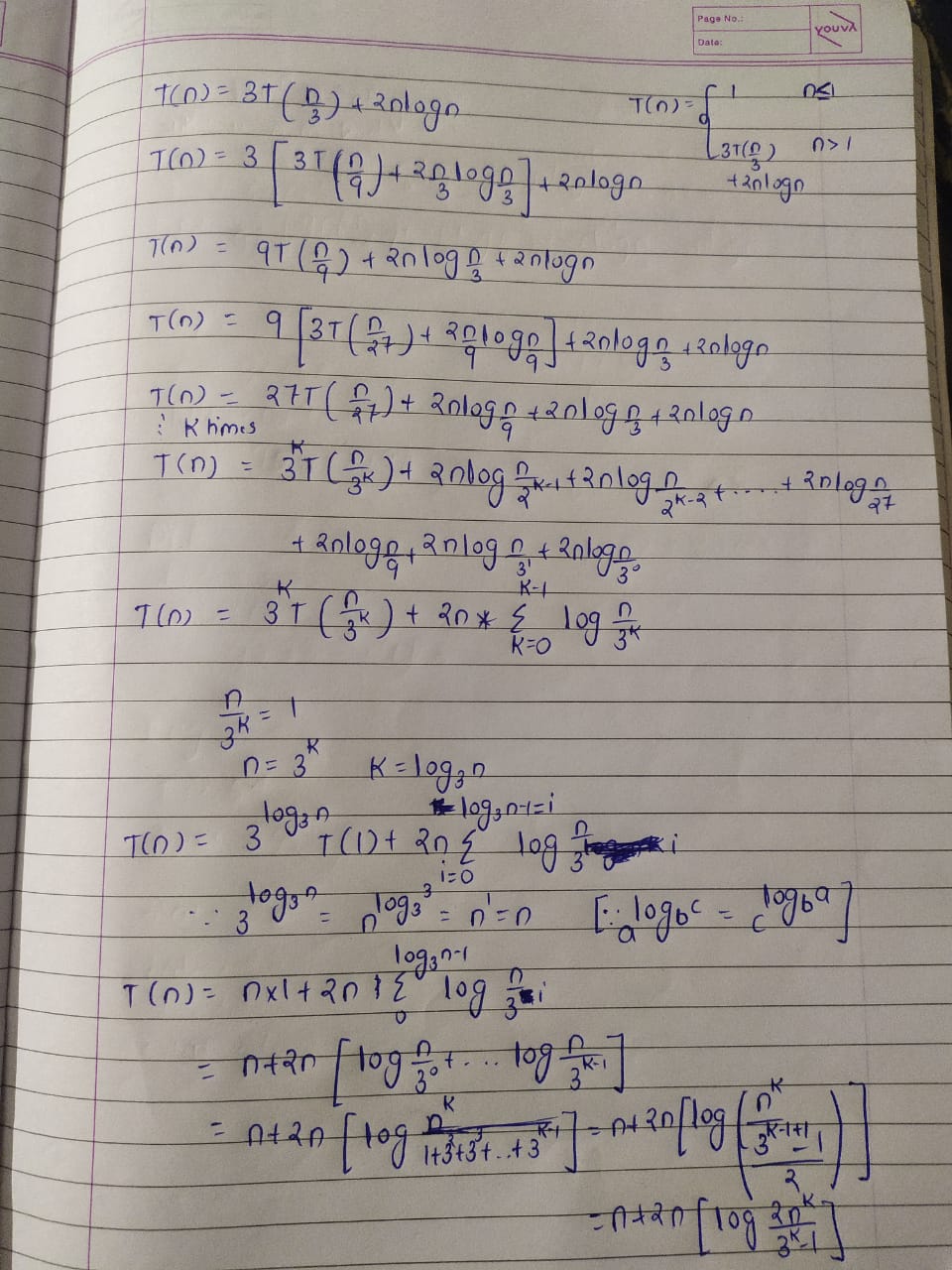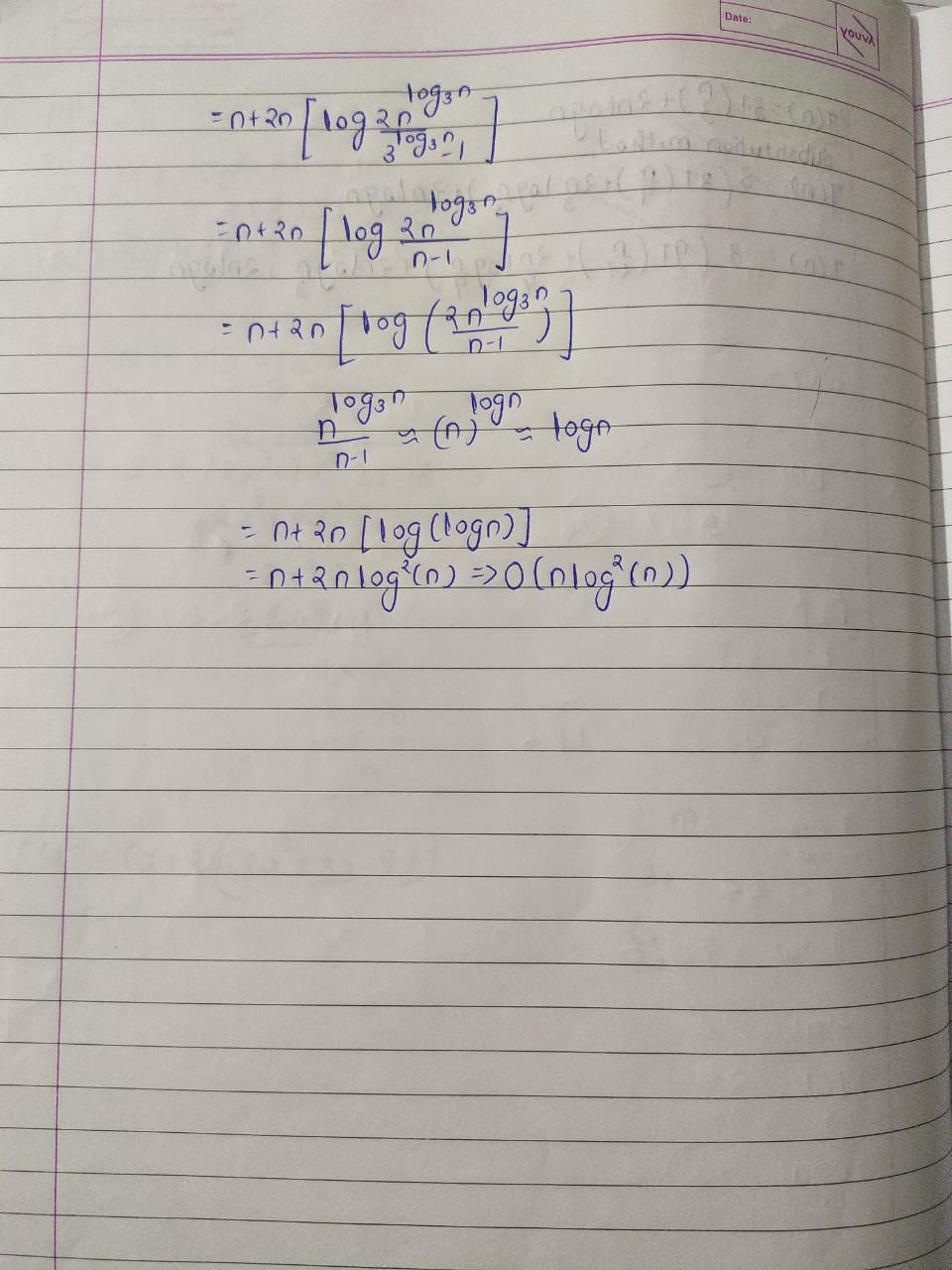I want to solve $$T(n)=3T\bigl(\bigl\lfloor \frac{n}{3}\bigr\rfloor\bigr) +2n\log n,$$ with base case $T(n) = 1$ if $n \leq 1$.
I know that the solution is(with the help of the Master Theorem) $$\Theta(n*log^2(n))$$ I tried without the Master theorem and witht the help of the substuition method I got the following expression $$T(n)=n+2*n*\sum_{k=0}^{log_{3}(n)-1}log(\frac{n}{3^k})$$
How can I convert this expression into a valid $\Theta(n*log^2(n))$ expression ?


